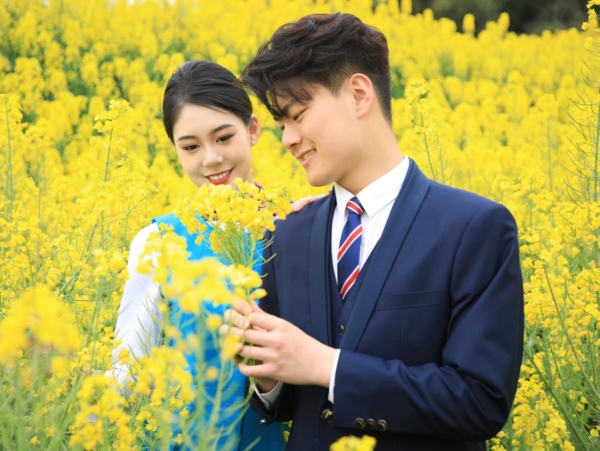A number of vocational colleges in China are offering students an extended spring break while encouraging them to experience nature and pursue love — a move that has been interpreted by some on Chinese social media as a bid to boost the country’s falling birth rate.

The week-long break is an expansion of China’s one-day national holiday for the Qingming Festival, where families clean the gravestones of their deceased relatives and make offerings.
Nine colleges affiliated with the Fan Mei Education Group announced this year’s extended break from April 1 to 7, with the theme of enjoying flowers and falling in love, in a March 23 press release.
Students will be required to keep track of their spring break activities with travel journals, video diaries and photography assignments that will be exhibited when classes resume. Liu Ping, deputy dean of an aviation college in Sichuan, said the holiday will allow students to practice the art of living and studying in tandem.
A notice about the new holiday at one institution included instructions that “pre-holiday guidance” should be given “around the theme of the spring break ‘to enjoy flowers and fall in love,’ to lead teachers, students and employees to have a meaningful vacation.”
When Sichuan Daily covered the announcement, Chinese social media users on Weibo were quick to speculate that the move may be related to recent efforts within the country to boost the birth rate.
“Is it to increase the fertility rate?” one user asked.
“Sichuan is really strong at boosting the fertility rate!” another wrote.
Many of the commenters were interested in seeing the new holiday brought to colleges across the country.
China’s birth rate has been declining for several years, with last year marking the first time in decades that deaths in the country outnumbered births.
China dug itself into a demographic hole largely through its one-child policy imposed between 1980 and 2015. Authorities raised the limit to three in 2021, but even during COVID-19 when people were staying at home all the time, couples have been reluctant to have children.
Young people cite high child care and education costs, low incomes, a feeble social safety net and gender inequalities as discouraging factors.
A high number of proposals on how to boost the birth rate were made at an annual meeting of China’s People’s Political Consultative Conference (CPPCC) this month, ranging from subsidies for families raising their first child, rather than just the second and third, to expanding free public education and improving access to fertility treatments.
Experts took the sheer number of proposals as a positive sign that China was treating its aging and declining demographics with urgency.
China’s birth rate last year fell to 6.77 births per 1,000 people, from 7.52 births in 2021, the lowest on record.
— With files from Reuters







Comments